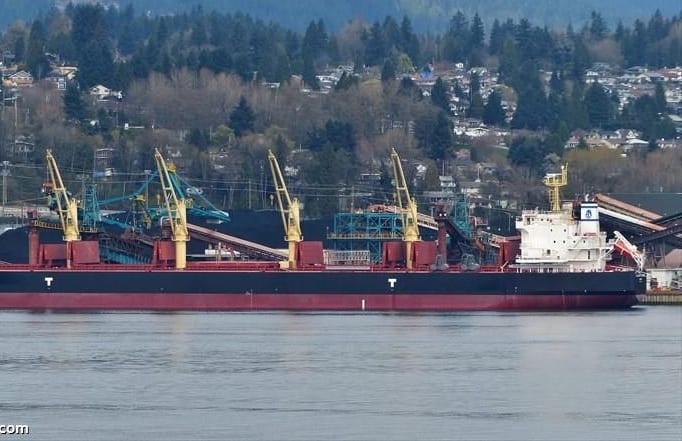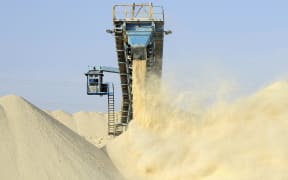New Zealand's two big fertiliser companies say they are unlikely to buy a controversial cargo of phosphate which was seized in South Africa but will now go back on the market.

The NM Cherry Blossom was carrying 50,000 tonnes of phosphate rock when it was stopped at Port Elizabeth. Photo: Supplied / M.L. Jacobs MarineTraffic.com
The NM Cherry Blossom was carrying 50,000 tonnes of phosphate rock bound for New Zealand when it was was stopped at Port Elizabeth, South Africa, last May.
Activists argued the fertiliser belonged to an independence movement for Western Sahara - where it was mined - not the Moroccans, who have occupied that area since 1975.
A South African court agreed, and the consignment is now expected to be put up for tender within a couple of weeks.
But Balance Agri-Nutrients, which had contracted to buy the material, said it would probably not put in an offer.
It said a final decision had not been made but it was unlikely to buy the fertiliser because it already lots of material in stock.
Since the seizure, Balance had been carefully building up stockpiles to make up for the shortfall, bringing in phosphate by long-range ships that go around Cape Horn and do not need to stop in South Africa to be refueled.
The other big company, Ravensdown, also said it would not seek to buy the material from the seized ship.
New Zealand uses hundreds of thousand of tonnes of phosphate for its intensive agriculture each year, much of it spread by aerial top dressing.
Phosphate is essential for plant cell metabolism.
Morocco produces about 75 percent of the world's phosphate, much of it mined in the Western Sahara, whose sovereignty is disputed.
Sympathisers of Western Saharan independence campaigners say the New Zealand companies should refuse to buy phosphate from there on ethical grounds.
Balance has not lost any money from the seizure because it was not due to pay for the cargo until it arrived in New Zealand, which is a different arrangement from many trade deals.
It is understood there are still financial hiccups to be sorted out in South Africa between the ship owners, their insurers and the Port Elizabeth wharf authorities over huge berthage fees, but details are unclear.



